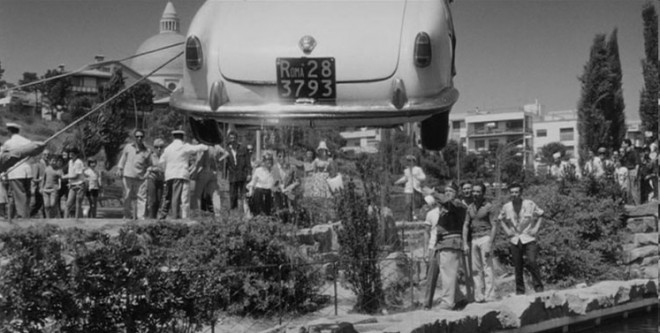Christine Surgère is a young widow whose discovery of an old dance card of hers from nearly twenty years earlier sets her on a voyage to look up each of the suitors listed there. Childless, Christine hopes to reignite a former attachment to fill a complex void in her soul: not only that left by the death of her spouse, but the gnawing sense that her marital choice was never the right one. Haunted by the 1919 dance, Christine hopes to reset the clock.
Julien Duvivier’s Un carnet de bal (a.k.a. Dance Program and Christine) succeeds in some episodes and aspects and fails in others, but reaches an unexpected, satisfying conclusion. His integration of Christine’s memories of the some-time-ago waltz, dreamy and especially brilliant, helps explain the choice of Duvivier for his first American assignment: The Great Waltz (1938), about Johann Strauss II, which I’ve described as “Hollywood’s most radiant, rapturous musical biography.” The scene of Christine’s return to the dance hall, which is appallingly small, plain and threadbare compared to her memories of it, displays bravura skill in the cutting between the old dance, with the girls in flowing white gowns, and the current dance, unadorned, up-tempo, unromantic. (André Versein edited.) What a choice!: with the end of the First World War, a world of great hope and aspiration that has since crashed into a heap of exposed grand illusions, and now, as Europe continues its march towards another world war, a world of meager hope and dwindling aspiration. Duvivier’s film reflects the pessimism of the time—and of his own personality. It won the best foreign-language film prize at Venice.
The first name on the dance card belongs to someone who, Christine discovers, is deceased: a suicide for unrequited love for her. Georges’ mother, Marguerite, who lives in the past, when Georges was alive, has been driven insane by her grief. She confronts Christine with a prophetic mirror-image of herself should Christine continue to wrap herself in the past, turn back the clock, drape herself in delusions. Regrettably, Françoise Rosay, so often so good, is over-the-top as Marguerite Audié, enacting the role for neither the horror nor the pathos of insanity but merely as an opportunity for histrionics. On the other hand, it is this episode that sets up the film’s poignant, positive conclusion.
As Christine makes her way down the dance card, several of the encounters (all of which unearth more disappointed, even broken lives) are tedious, unconvincing and not especially well acted, although Harry Baur is marvelous as a priest in a so-so episode, and Pierre Blanchar is gripping as an embittered, one-eyed abortionist in perhaps the best episode, that is, until the finale.
Marie Bell plays Christine. She is cold and emphatic, so Duvivier “softens” her by dressing her beguilingly and half-hiding her face underneath ultra-feminine hats. Apparently he learned nothing from the chore of working with such a frigid, monolithic lead because he chose the same sort of actress, Merle Oberon, to star in the Hollywood remake, Lydia (1941). Either Marlene Dietrich or Bette Davis—oh, gosh, even Claudette Colbert!—would have done a much better job.
B(U)Y THE BOOK
MY BOOK, A Short Chronology of World Cinema, IS CURRENTLY AVAILABLE FROM THE SANDS FILMS CINEMA CLUB IN LONDON. USING EITHER OF THE LINKS BELOW, ACCESS THE ADVERTISEMENT FOR THIS BOOK, FROM WHICH YOU CAN ORDER ONE OR MORE COPIES OF IT. THANKS.
